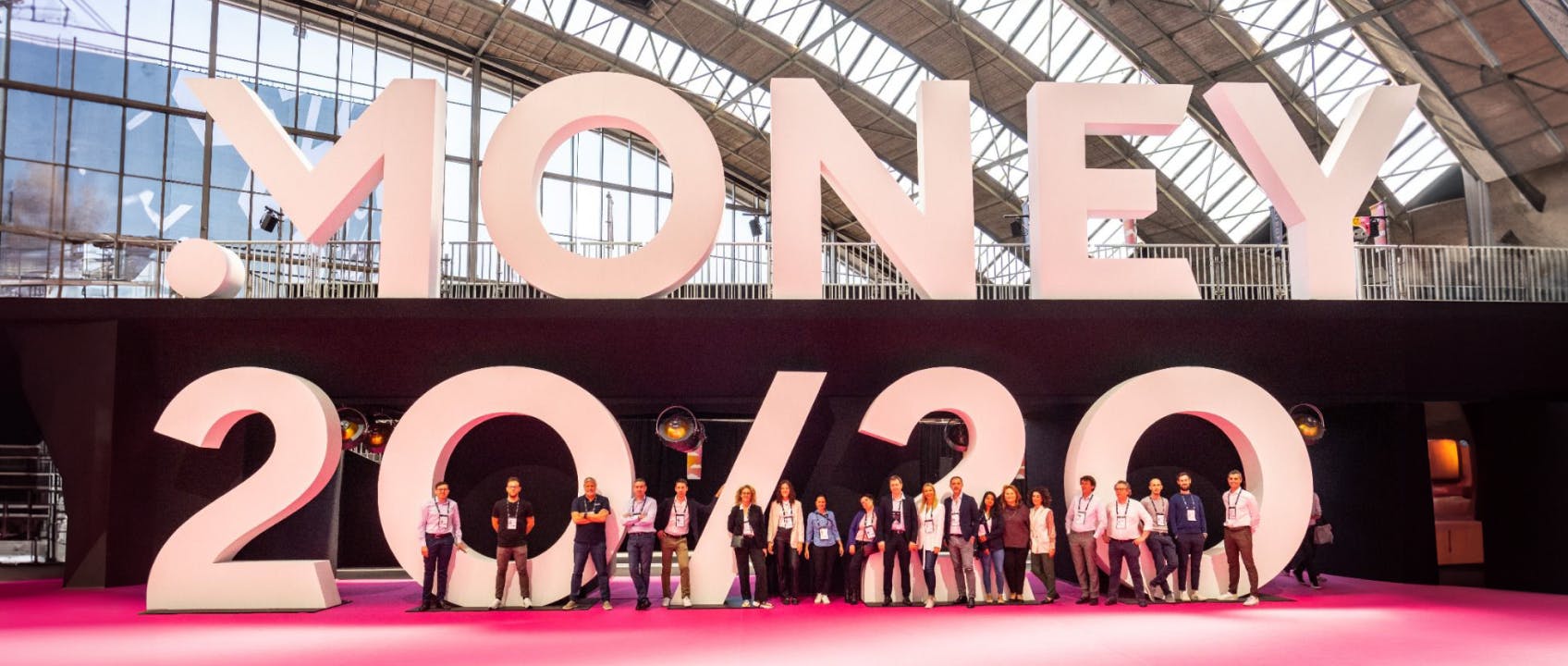Fabrick at Money20/20 2023: Embedded Finance, payments as “relational” driver for businesses, and the rise of the Italian fintech ecosystem

Fabrick took part in its first Money20/20 back in June 2018, just after the official introduction of PSD2, to announce Europe that it was ready to begin its journey as an enabler of Open Banking services, empowering banks, fintechs, and corporates to create new business models and products through its Open Platform, with the aim of “shaping finance together”.
As the market moves toward Open Finance and EU institutions begin the regulatory journey to revise PSD2, we are witnessing a strong convergence between the worlds of Open Banking and Open Payments, linked to the ability of payments carried on “open platforms” to solve businesses' complex problems, especially in the B2B payment space.
Due to changing customers’ expectations when it comes to multiple payment methods and the difficulty for firms to efficiently deal with payments and the relative omnichannel information flows, especially if their supply chains are structured on a B2B2X model, many businesses today view the management of payments as a task that is complicated, expensive, fragmented, and difficult to innovate.
The integration of financial products in non-financial customer journeys can become a strategic asset for companies to streamline their processes, scale internationally, and evolve their business models. Therefore, by properly adopting Embedded Finance solutions, businesses can provide their customers with innovative valued-added services, which can help them grow at all levels, remaining competitive in the market, and staying ahead of upcoming trends.
Mastering complexity along the E2E value chain through Payment Orchestration and Embedded Finance
At this year’s Money20/20, we discussed the future of payments and how businesses can transform their end-to-end value chains with two other global companies such as Reale Group, a ‘traditional’ Italian-based corporate that offers solutions and protection to over 4.5mln clients in the banking, insurance, real estate and services field, and Spotify, the world’s most popular audio streaming subscription service, with 515m users in over 180 markets.
On the main stage, Spotify and Reale Group shared similar thoughts when considering the management of multi-method payment acceptance and the need to offer clients an outstanding and frictionless customer experience. However, it is interesting to note how these two companies have adopted two different approaches to tackle the complexity of the end-to-end value chains.
On the one hand, given its extensive global coverage, Spotify has built its own in-house orchestration platform, which enables them to integrate to multiple payment processors and then optimise for both payment success rates and costs. On the other hand, Reale Group has chosen the solutions offered by the Fabrick Open Platform to evolve its operating model for the management of premium collections, allowing its wide networks to offer between different means of payment and making all those processes related to the collection and accounting of policies more efficient.
Spotify and Reale are two examples of companies operating internationally with a different level of value chain complexity but with the common need to digitise operations and orchestrate payment flows, thus centralising the management of multi-channel payments. As these challenges become common across industries, we expect in future that a growing number of enterprises will turn to embedded payment platforms, which can streamline the integration of payment technology, intermediate between different layers of the payment stack and encapsulate payment services within vertical platforms focused on specific sectors.
ESG, diversity and privacy: the future of Fintech is not just an Embedded Finance matter
Money20/20 was an excellent opportunity to highlight the growth of the wider Italian fintech ecosystem and the importance of issues like ESG, inclusion and digital identity. In collaboration with the Fintech District and the Italian Trade Agency (ITA), at the Speakers’ Corner area of our stand, we welcomed around 20 leading professionals to speak about their companies and the future of fintech.
In particular, we enjoyed the views of Carl-Johan von Uexkull, Chief Commercial Officer at Doconomy, who discussed why European ESG companies are attracting the increasing interest of investors (2022 total investments in ESG Fintech’s in Europe equaled $855m), and the thoughts of Francesca Aliverti, Co-Founder & Equity Partner at FTS Group, who talked about what could be done to boost inclusion in fintech (according to the IFM, today women represent less than 10% of leadership positions, both as founders and as members of executive boards of fintech firms).
At the same time, with Fabian Eberle, COO and Co-Founder, Keyless and Lewis Nurcombe, Global Head of Sales, Currencycloud, we also learnt how balancing security, privacy, and a frictionless user experience is becoming key for companies from any sector to compete in an ever-digital world and why moving money across borders simply and effectively is creating a better tomorrow for all.
In just two short decades, fintech has exploded onto the scene, revolutionizing the financial services industry as we know it. This dynamic sector has been fueled by the various innovations that have shaped a generation, each one seemingly more game-changing than the last. Whilst Embedded Finance is set to lead the next era of fintech growth, it’s not a surprise that, according to latest projections, the wider fintech industry is estimated to reach $1.5 trillion in annual revenue by 2030¹, constituting almost 25% of all banking valuations worldwide.
Would you like to find out more on the topic? Download our whitepaper on the world of Embedded Finance and how to streamline B2B2X payment processes for free.
Sources
Global Fintech 2023: Reimagining the Future of Finance | Boston Consulting Group, 2023
Our insights

Embedded Lending revolutionizes financing for businesses and consumers

Ransomware: a growing trend in the cyberfraud landscape


